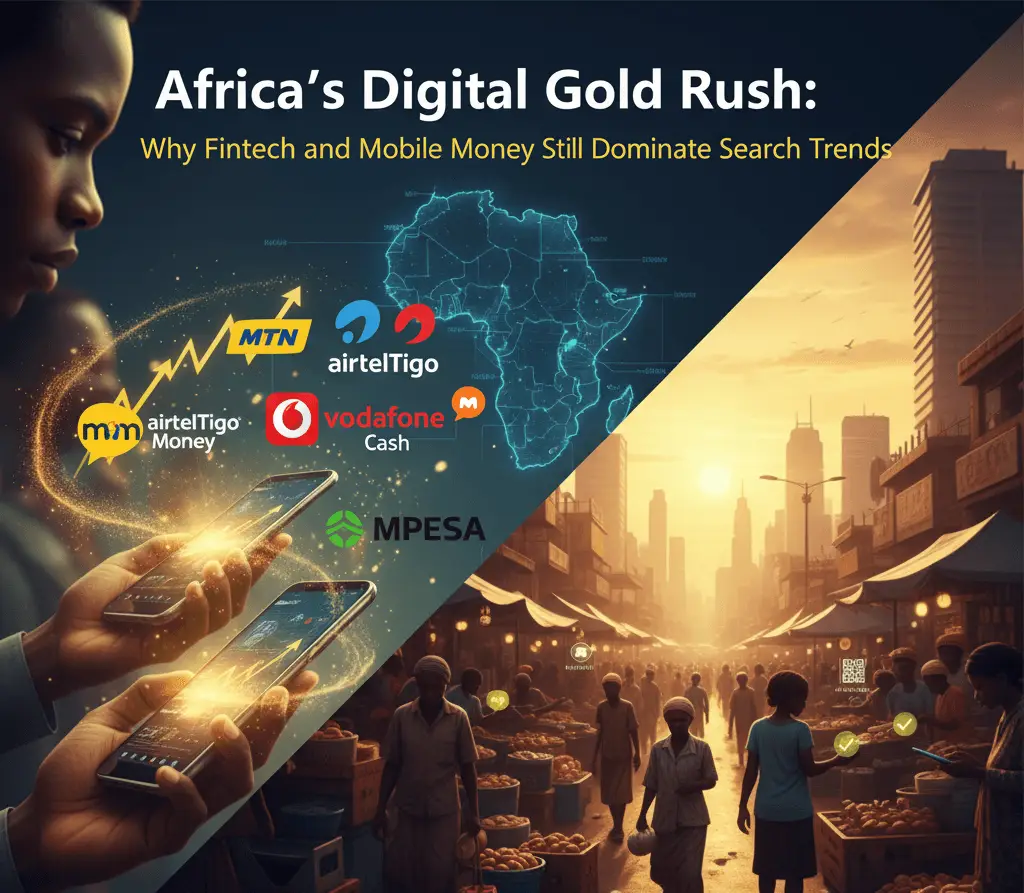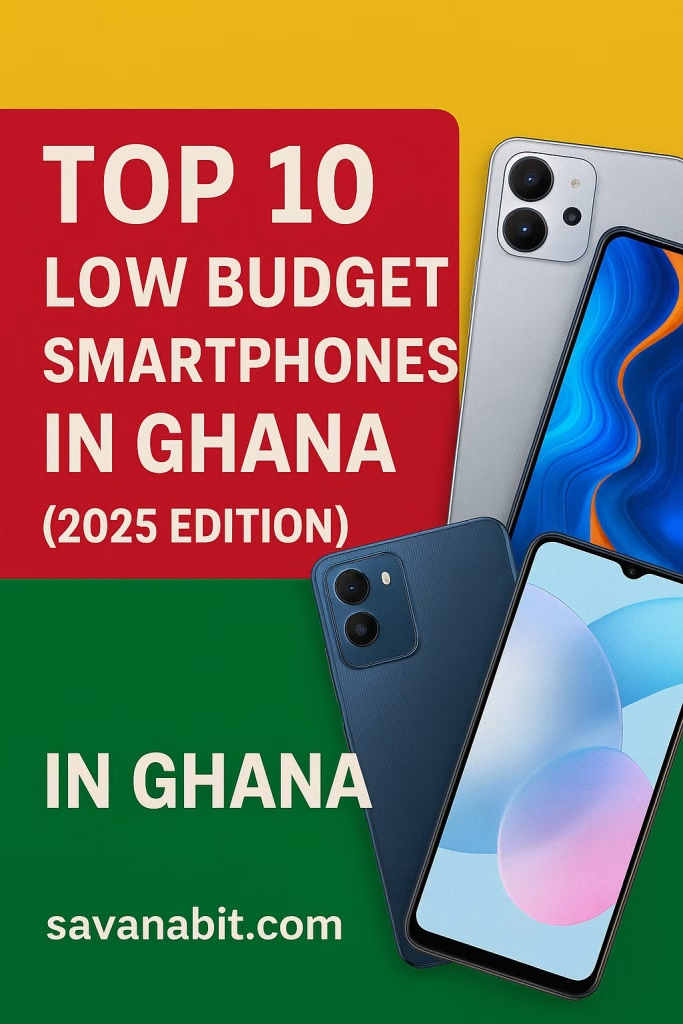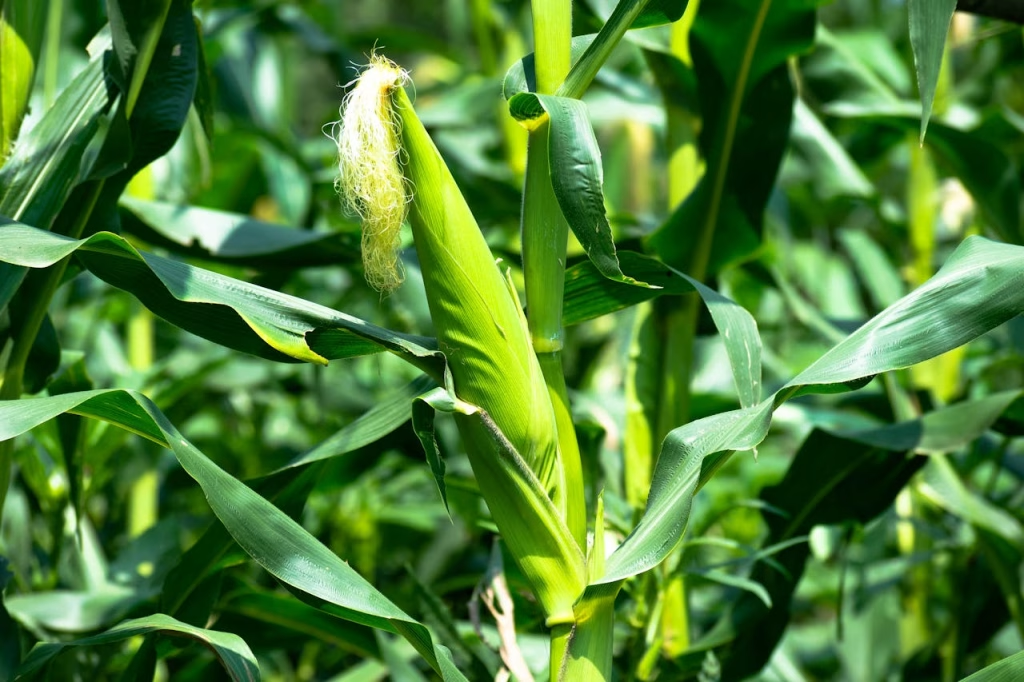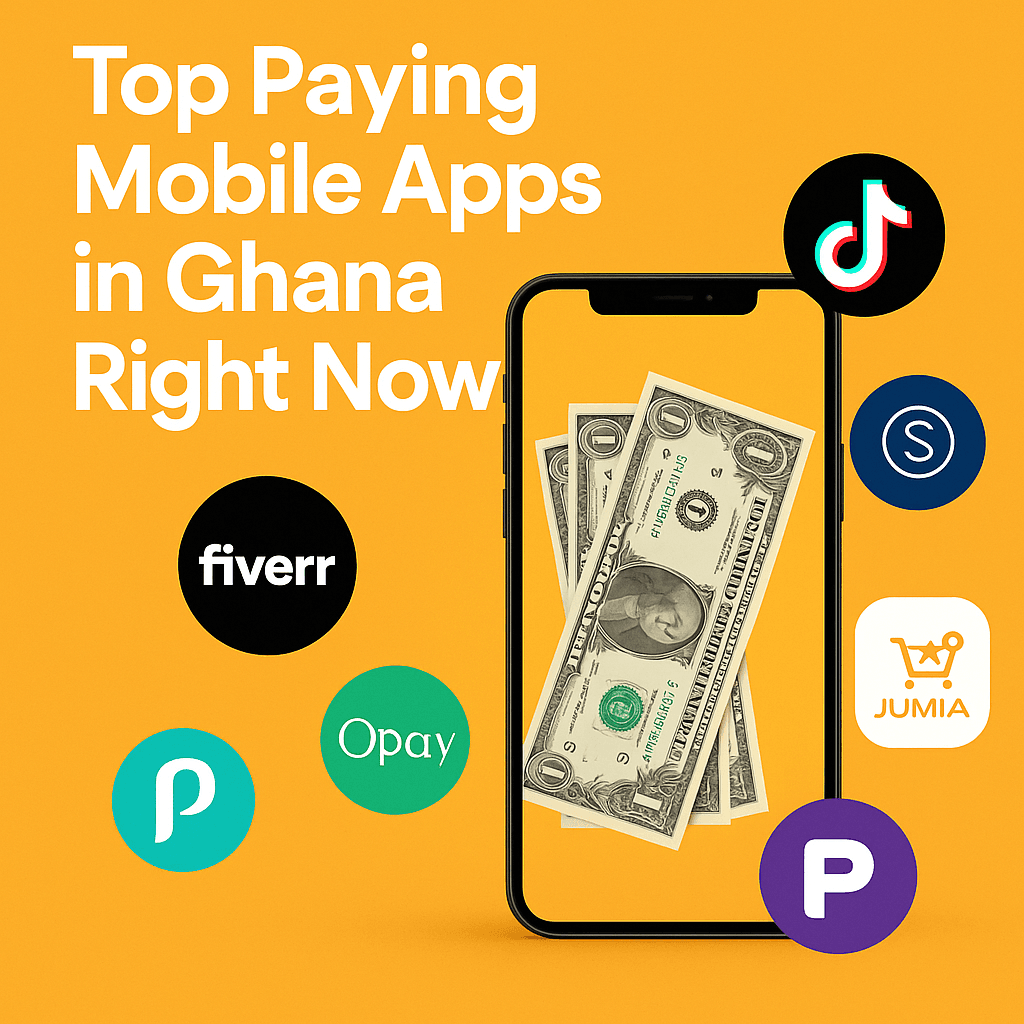Africa’s Digital Gold Rush: Why Fintech and Mobile Money Still Dominate Search Trends
Across Africa, digital finance is rewriting the story of economic participation. From Accra to Nairobi, fintech platforms are doing what traditional banks could not: giving millions of people control over how they send, save, and spend money.
In the last decade, fintech and mobile money have become not just buzzwords but the core drivers of Africa’s digital transformation. Search trends across Google, Bing, and social media analytics reveal one truth—Africans are more interested in financial technology than any other digital topic.
This post explores why fintech continues to dominate Africa’s online search ecosystem, the key players driving this growth, and what opportunities still lie ahead for innovators, investors, and consumers.
The Rise of Africa’s Fintech Revolution
Africa’s fintech journey began quietly in the early 2000s, long before “digital finance” became a global trend. In 2007, Kenya’s M-Pesa launched as a simple service for sending money via mobile phones. It quickly became a lifeline for millions without access to banks.
By 2025, mobile money is used by more than 60% of Africa’s adult population, and the fintech sector attracts over $3 billion in annual investments.
Countries like Ghana, Nigeria, Kenya, and South Africa are now among the world’s most active fintech markets. Search volumes for terms like “mobile money apps,” “digital wallet in Africa,” and “fintech startups” have risen by over 300% since 2020.
This surge in online curiosity reflects real economic movement. Fintech has created thousands of jobs, simplified remittances, and opened new pathways for cross-border trade.
Why Fintech Tops Search Trends in Africa
Fintech’s dominance in search results is not accidental. It stems from real-life demand, rapid product innovation, and changing user behavior.
a. Financial Inclusion is Driving Curiosity
More than 350 million adults in Africa still lack access to traditional banking. For them, fintech represents the only bridge to digital payments, loans, and insurance.
People are constantly searching for information like:
“How to open a mobile money account”
“Best fintech apps in Ghana or Kenya”
This everyday search activity pushes fintech-related topics to the top of Google’s rankings.
b. The Rise of Youth Entrepreneurship
Africa has the youngest population in the world, with nearly 60% under the age of 25. A large portion of this generation is digitally aware, business-minded, and eager to explore tech solutions for income.
As a result, queries such as “how to start a fintech company in Africa” and “mobile payment gateway for small businesses” consistently rank high on platforms like Google Trends and Semrush.
c. Mobile Penetration and Smartphone Growth
Smartphone usage across the continent has grown by over 65% since 2019, according to GSMA. As more people gain internet access, they naturally explore ways to handle money digitally—especially when banks remain scarce in rural areas.
d. Cross-Border Trade and Remittances
The African diaspora sends over $90 billion home annually. Mobile money and digital wallets have simplified this process, and search trends mirror the growing demand for “cheap money transfer apps” and “cross-border payment platforms.”
Top Countries Powering Africa’s Fintech Momentum
Let’s look at where the most significant digital finance activity is happening.
Ghana: The Fastest Growing Mobile Money Market
Ghana’s mobile money ecosystem has evolved from simple person-to-person transfers to full financial services. With platforms like MTN MoMo, Zeepay, and Hubtel, Ghanaians can pay bills, buy insurance, receive salaries, and even access microloans directly on their phones.
In 2024, the Bank of Ghana reported that over GHS 1.3 trillion moved through mobile money platforms—a clear sign of trust and adoption.
Online searches for “MoMo agent near me” and “register MTN MoMo business account” are among the top financial queries in the country.
Kenya: The Pioneer That Started It All
Kenya remains the continent’s fintech benchmark. M-Pesa, Tala, and Branch continue to define digital finance innovation.
Nairobi’s startup ecosystem, often called “Silicon Savannah,” attracts global venture capitalists and policy attention. The government’s support for financial inclusion ensures fintech stays at the center of Kenya’s digital policy.
Nigeria: The Fintech Capital of Africa
With a population exceeding 200 million and a rapidly expanding internet base, Nigeria’s fintech market is fierce and competitive. Startups like Flutterwave, Paystack, and OPay are now international names.
Search interest in “how to use Flutterwave for business” or “Paystack payment integration” has grown sharply. Nigeria’s developers and freelancers often lead discussions around digital payments, making fintech a recurring theme in the country’s online landscape.
The Role of Mobile Money in Africa’s Economy
Mobile money is no longer just a payment tool—it is an economic system. It enables government disbursements, salaries, and even rural business operations.
Key Benefits Driving Continued Growth:
Accessibility: Anyone with a phone can participate in the economy.
Trust: Mobile operators have become household names, trusted even more than banks in some regions.
Speed and Convenience: Real-time transactions reduce the delays associated with traditional banking.
Safety: Digital payments reduce theft and loss of physical cash.
Micro-Investments: Platforms now allow savings and investment from as little as 1 cedi or 10 shillings.
These features have made mobile money central to Africa’s informal and formal markets alike.
Search Trend Insights: What Africans Are Looking For
Data from Google Trends shows consistent search interest in the following areas:
| Search Term | Popular Regions | Growth (2020–2025) |
|---|---|---|
| Mobile Money | Kenya, Ghana, Uganda | +340% |
| Fintech Apps | Nigeria, South Africa | +290% |
| Digital Wallet | Ghana, Kenya | +260% |
| Online Loans | Nigeria, Tanzania | +310% |
| Cryptocurrency Africa | South Africa, Kenya | +420% |
These figures suggest Africans are not only adopting fintech but actively seeking knowledge on how to leverage it for business and personal growth.
Fintech’s Broader Impact on Africa’s Development
Fintech is more than just a digital service—it’s a social equalizer.
Women’s empowerment: Mobile wallets give women in rural communities financial independence.
Education: Students can now pay fees digitally or receive remittances from abroad within minutes.
SMEs: Small businesses use fintech for bookkeeping, salary payments, and marketing.
Agriculture: Farmers can now receive payments for produce instantly, improving supply chain efficiency.
As a result, fintech has become an anchor for Africa’s journey toward the United Nations Sustainable Development Goals (SDGs)—especially those related to poverty reduction, gender equality, and economic growth.
The Future of Fintech in Africa: Beyond Payments
The next stage of fintech growth will go beyond transactions. Here’s what to expect:
a. Artificial Intelligence and Credit Scoring
Fintech companies are now using AI to predict creditworthiness, especially for those without formal banking histories. This opens new access to loans and financial services.
b. Decentralized Finance (DeFi)
Africa’s young tech community is exploring blockchain and decentralized apps (DApps). This could redefine transparency and reduce fraud in local financial systems.
c. Government Digital Policy Support
More African governments are passing fintech-friendly regulations. For example, Ghana’s Payment Systems Act and Nigeria’s Central Bank Sandbox Framework make it easier for startups to test and launch innovations safely.
d. The Integration of E-commerce and Fintech
Online stores increasingly depend on digital wallets for payments, linking fintech directly to the growing e-commerce ecosystem. The synergy between digital trade and fintech will continue to fuel Africa’s online economy.
Challenges That Remain
Despite progress, the industry still faces key challenges:
Cybersecurity threats and data privacy concerns.
Regulatory inconsistencies across countries.
Limited infrastructure in remote areas.
Low digital literacy among older populations.
However, each of these issues also represents an opportunity for startups to create solutions—especially in cybersecurity education, digital ID verification, and fintech training.
Opportunities for Businesses and Investors
With more than 1.4 billion potential users, Africa is an open field for digital finance expansion.
Areas with untapped potential include:
Agent banking networks
Micro-insurance
Rural digital lending
Youth-focused financial literacy programs
Foreign and local investors can find sustainable returns by supporting companies that merge technology with community-driven solutions.
Conclusion: The Digital Gold Rush Is Far From Over
Africa’s fintech story is still unfolding, but the direction is clear. Fintech and mobile money are not just reshaping how Africans interact with money—they’re redefining what economic freedom means.
Search trends mirror a deeper truth: Africans are not waiting to be included in the digital economy. They are building it, one transaction at a time.
As more talent, investment, and policy support converge, fintech will remain Africa’s digital gold rush—a source of innovation, empowerment, and economic transformation for decades to come.
#fintech in Africa, #mobile money, #African digital economy, #fintech trends 2025, #Ghana fintech, #M-Pesa, Flutterwave, #MTN MoMo, #financial inclusion Africa







